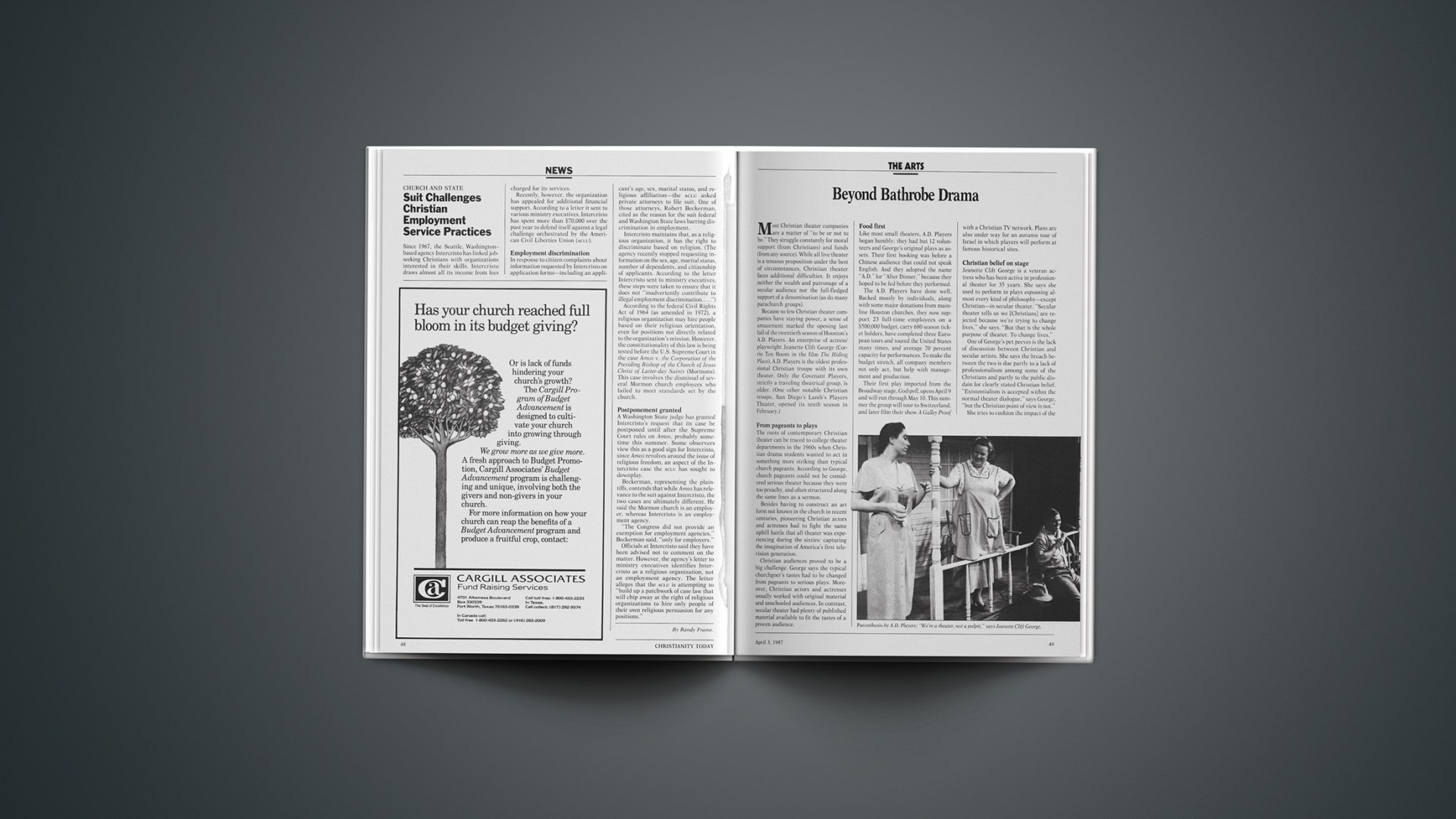Since 1967, the Seattle, Washington-based agency Intercristo has linked job-seeking Christians with organizations interested in their skills. Intercristo draws almost all its income from fees charged for its services.
Recently, however, the organization has appealed for additional financial support. According to a letter it sent to various ministry executives, Intercristo has spent more than $70,000 over the past year to defend itself against a legal challenge orchestrated by the American Civil Liberties Union (ACLU).
Employment Discrimination
In response to citizen complaints about information requested by Intercristo on application forms—including an applicant’s age, sex, marital status, and religious affiliation—the ACLU asked private attorneys to file suit. One of those attorneys, Robert Beckerman, cited as the reason for the suit federal and Washington State laws barring discrimination in employment.
Intercristo maintains that, as a religious organization, it has the right to discriminate based on religion. (The agency recently stopped requesting information on the sex, age, marital status, number of dependents, and citizenship of applicants. According to the letter Intercristo sent to ministry executives, these steps were taken to ensure that it does not “inadvertently contribute to illegal employment discrimination.…”)
According to the federal Civil Rights Act of 1964 (as amended in 1972), a religious organization may hire people based on their religious orientation, even for positions not directly related to the organization’s mission. However, the constitutionality of this law is being tested before the U.S. Supreme Court in the case Amos v. the Corporation of the Presiding Bishop of the Church of Jesus Christ of Latter-day Saints (Mormons). This case involves the dismissal of several Mormon church employees who failed to meet standards set by the church.
Postponement Granted
A Washington State judge has granted Intercristo’s request that its case be postponed until after the Supreme Court rules on Amos, probably sometime this summer. Some observers view this as a good sign for Intercristo, since Amos revolves around the issue of religious freedom, an aspect of the Intercristo case the ACLU has sought to downplay.
Beckerman, representing the plaintiffs, contends that while Amos has relevance to the suit against Intercristo, the two cases are ultimately different. He said the Mormon church is an employer, whereas Intercristo is an employment agency.
“The Congress did not provide an exemption for employment agencies,” Beckerman said, “only for employers.”
Officials at Intercristo said they have been advised not to comment on the matter. However, the agency’s letter to ministry executives identifies Intercristo as a religious organization, not an employment agency. The letter alleges that the ACLU is attempting to “build up a patchwork of case law that will chip away at the right of religious organizations to hire only people of their own religious persuasion for any positions.”










